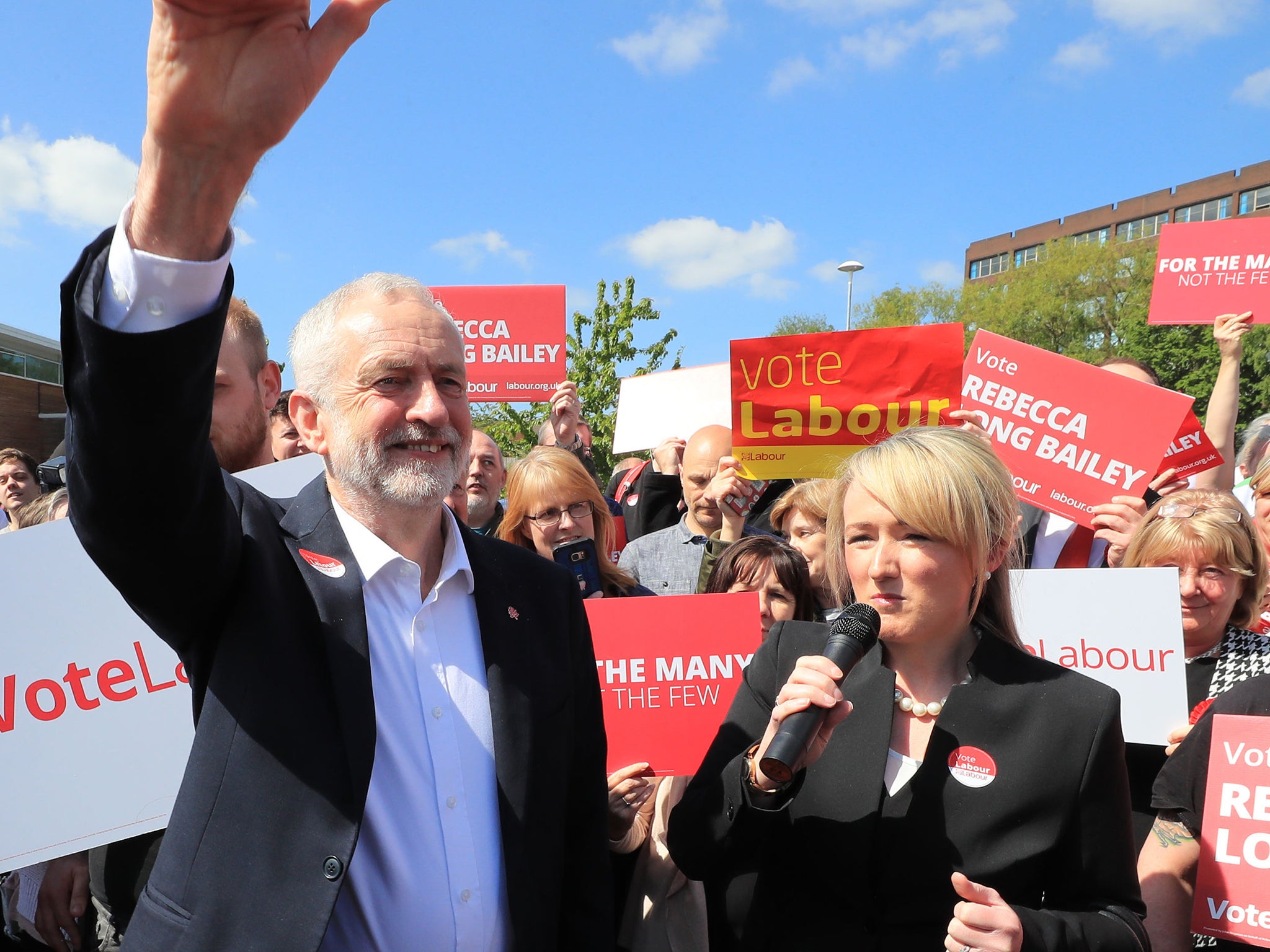Election 2017: Labour cuts Conservative poll lead by eight points
Result comes after a series of public appearances by Jeremy Corbyn in recent days

Your support helps us to tell the story
From reproductive rights to climate change to Big Tech, The Independent is on the ground when the story is developing. Whether it's investigating the financials of Elon Musk's pro-Trump PAC or producing our latest documentary, 'The A Word', which shines a light on the American women fighting for reproductive rights, we know how important it is to parse out the facts from the messaging.
At such a critical moment in US history, we need reporters on the ground. Your donation allows us to keep sending journalists to speak to both sides of the story.
The Independent is trusted by Americans across the entire political spectrum. And unlike many other quality news outlets, we choose not to lock Americans out of our reporting and analysis with paywalls. We believe quality journalism should be available to everyone, paid for by those who can afford it.
Your support makes all the difference.The Conservative lead over Labour has been cut by eight points in a new poll.
According to Kantar Public, 44 per cent of people intended to vote for the Conservatives, down four points, while Labour's tally had risen four points, to 28 per cent, since the last poll over the bank holiday weekend. The Liberal Democrats followed on 11 per cent.
It comes after a series of public appearances by Jeremy Corbyn in recent days. Kantar found he was more likely to be seen as in touch with ordinary people.
Kantar's poll of 1,201 adults was carried out between 4 and 8 May.
It found twice as many people thought the Conservatives were the best party to manage the UK economy as Labour. But it added that "the British public are far from convinced by either party", with 39 per cent of people saying they could not decide.
Kicking off Labour's election campaign on Tuesday Mr Corbyn said the issue of Brexit was "settled".
On his battlebus tour of the UK, Mr Corbyn promised a Labour government would deliver a “jobs-first Brexit”. The leader has so far attempted to steer the campaign narrative away from the Brexit debate — which has left the Labour party fiercely divided — instead focusing on Tory cuts to public services.
He said: "This election isn't about Brexit itself. That issue has been settled. The question now is what sort of Brexit do we want — and what sort of country do we want Britain to be after Brexit?"
Kantar's head of political attitudes, Luke Taylor, said: "While one in 10 likely voters have yet to decide how they will vote, it seems unlikely that these individuals will swing the electoral balance towards the Labour party.
"Those that have not expressed a voting intention are currently more likely to associate Theresa May than Jeremy Corbyn with being a good negotiator, being decisive and having good attention to detail.
"These skills are likely to be important to voters because they know they are not just voting for a party but, indirectly, for a Prime Minister to negotiate the UK’s exit from the EU. The recent campaign appearances from Theresa May suggest that she has cottoned on to this fact."
Join our commenting forum
Join thought-provoking conversations, follow other Independent readers and see their replies
Comments